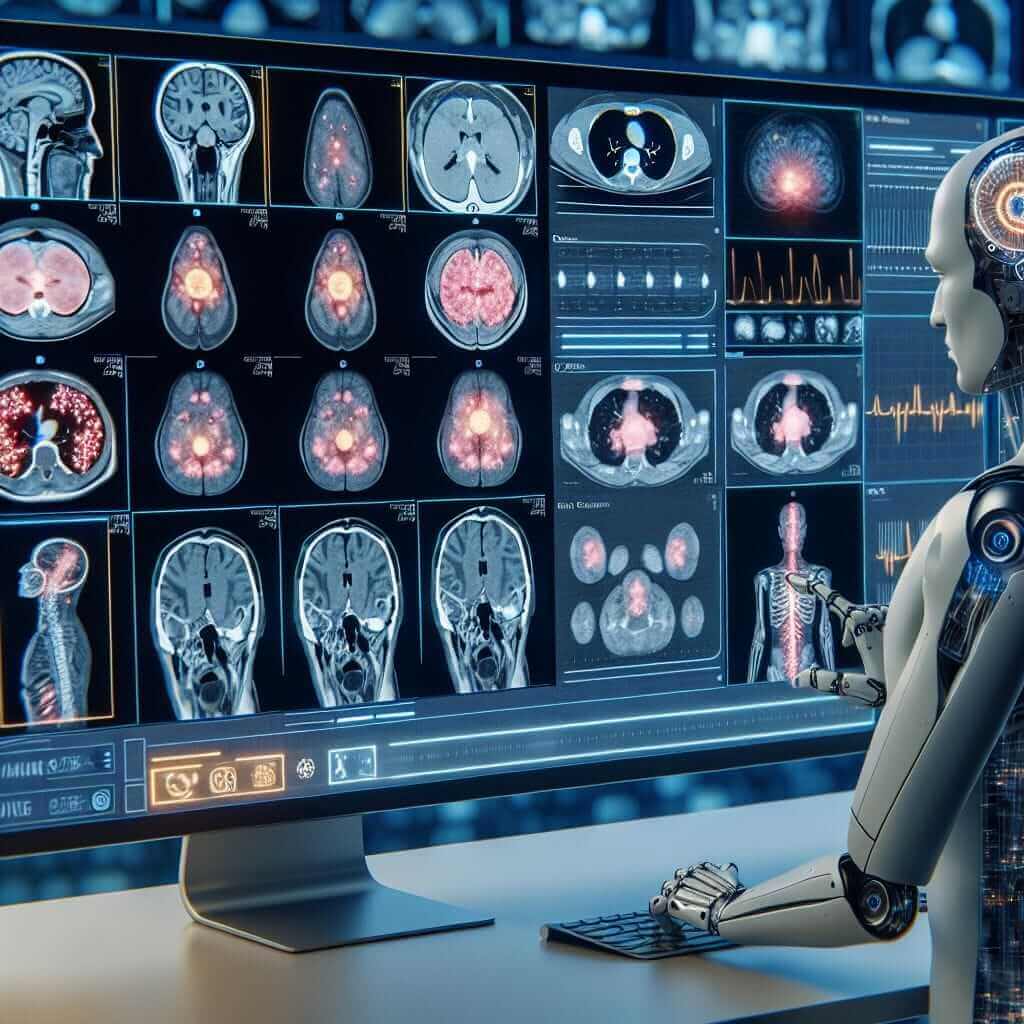The Reading section of the IELTS exam is designed to evaluate a candidate’s ability to read and comprehend complex texts. The topics in this section often cover a range of academic and general interest subjects, including science, technology, humanities, and more. One of the trending topics in the past few years has been the impact of artificial intelligence (AI) on various industries, including healthcare. Specifically, “How is AI transforming healthcare diagnostics?” has become a focal point due to the rapid advancements in technology and its practical applications.
Given the frequent appearance of technological topics in the IELTS Reading section, there’s a high probability that a similar subject could come up again. Therefore, it’s beneficial to prepare for this by practicing with articles and questions related to AI and healthcare.
Main Content
Reading Passage: AI and Healthcare Diagnostics
Below is a sample reading passage in the format of an IELTS Reading section. This passage is categorized as Medium Text.
AI and Healthcare Diagnostics
Artificial Intelligence (AI) is increasingly transforming healthcare diagnostics by providing faster, more accurate, and personalized treatments. The infusion of AI into medical diagnostics is revolutionizing how diseases are detected, monitored, and treated. Through advanced algorithms and machine learning, AI systems can process vast amounts of medical data, enhancing the capability of healthcare providers.
One of the most significant advantages of AI in diagnostics is its ability to analyze complex medical images. Traditional imaging techniques, such as X-rays, MRIs, and CT scans, require the expertise of radiologists to interpret. However, AI systems can now assist in identifying patterns and anomalies that might be overlooked by the human eye. For instance, Google’s DeepMind has developed AI algorithms that can predict the onset of acute kidney injury up to 48 hours before traditional methods.

Additionally, AI-powered diagnostic tools are making strides in the field of pathology. By analyzing tissue samples, these systems can accurately identify cancerous cells and provide insights into the specific type of cancer. This not only speeds up the diagnosis process but also reduces the likelihood of misdiagnosis. IBM’s Watson, for example, is being used to analyze genomic data, offering personalized treatment options based on a patient’s genetic makeup.
Furthermore, AI is playing a pivotal role in diagnosing infectious diseases. During the COVID-19 pandemic, AI models were utilized to analyze lung scans and predict the severity of the infection. This quicker diagnosis enabled healthcare providers to prioritize treatment for those in critical condition.
Despite its advantages, the integration of AI in healthcare diagnostics is not without challenges. Data privacy concerns, the need for high-quality data, and the potential for algorithmic bias are significant hurdles that need addressing. Ensuring that AI systems are transparent and explainable is crucial to gaining the trust of healthcare professionals and patients alike.
Nevertheless, the potential benefits of AI in healthcare diagnostics are immense. As technology continues to advance, AI-powered diagnostic tools will become even more integral to the healthcare industry, ultimately leading to improved patient outcomes and more efficient healthcare systems.
Questions
1. Multiple Choice Questions
-
What is one of the key advantages of AI in healthcare diagnostics?
a) Lower costs
b) Faster processing of medical data
c) Less need for expertise
d) Greater patient privacy -
Which AI tool is used to analyze genomic data for personalized treatment?
a) DeepMind
b) Google AI
c) Watson
d) AlphaGo
2. True/False/Not Given
3. AI systems are incapable of identifying patterns in medical images.
4. Data privacy is a concern in AI-powered healthcare diagnostics.
3. Matching Information
Match the information with the corresponding AI capability:
a) Analyzing tissue samples
b) Predicting acute kidney injury
c) Assessing the severity of COVID-19 infection
4. Sentence Completion
Complete the sentences with no more than two words:
5. AI in healthcare diagnostics can provide more __ treatments.
6. The integration of AI in healthcare faces challenges like data privacy and __ bias.
Answer Key
1. Multiple Choice Questions
- b) Faster processing of medical data
- c) Watson
2. True/False/Not Given
3. False
4. True
3. Matching Information
a) Analyzing tissue samples – Cancer diagnosis
b) Predicting acute kidney injury – DeepMind AI
c) Assessing the severity of COVID-19 infection – AI models during the pandemic
4. Sentence Completion
5. personalized
6. algorithmic
Common Mistakes
- Overlooking Key Details: Students often miss specific details in passages that are crucial for answering questions correctly. It’s important to read carefully and identify keywords.
- Misinterpreting the Question: Ensure you understand whether a question is asking for true/false facts or the author’s opinions/claims.
- Time Management: Allocate your time wisely, ensuring you have sufficient time to both read the passage and answer the questions.
Vocabulary
- Revolutionizing (verb) – /ˌrɛvəˈluːʃənaɪzɪŋ/ – Dramatically changing in a significant way.
- Anomalies (noun) – /əˈnɒməliz/ – Something that deviates from what is standard or expected.
- Genomic (adjective) – /dʒəˈnɒmɪk/ – Relating to the complete set of genes or genetic material of an organism.
- Algorithmic (adjective) – /ˌælɡəˈrɪðmɪk/ – Relating to algorithms, which are sets of rules or calculations followed by a machine or computer.
Grammar
- Passive Voice: AI systems can now be used to analyze medical images.
- Structure: Subject + be + past participle
- Complex Sentences: Although AI has many benefits, its integration in healthcare still faces challenges.
- Structure: Independent clause + subordinating conjunction + dependent clause
Tips for High Reading Scores
- Practice Regularly: Engage with a variety of reading materials, including scientific articles, journals, and academic papers.
- Enhance Vocabulary: Learn and practice new words daily to improve comprehension.
- Skimming and Scanning: Develop skimming and scanning techniques to quickly locate specific information in the passages.
- Time Management: Regularly practice under timed conditions to become proficient in managing the 60 minutes allocated to the Reading section.
For more insights on AI in healthcare, refer to our related articles on How is AI Transforming Personalized Healthcare and How is Artificial Intelligence Being Used in Healthcare Diagnostics.